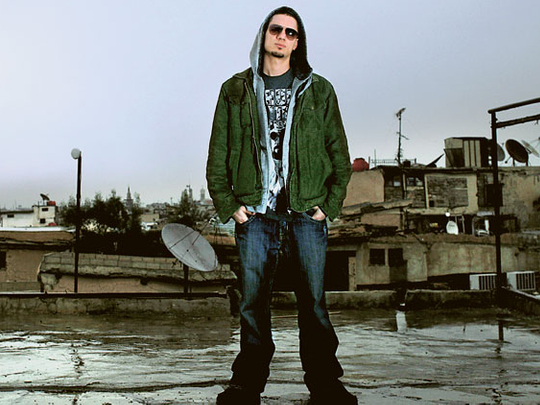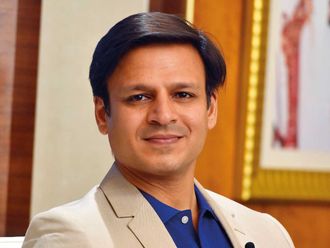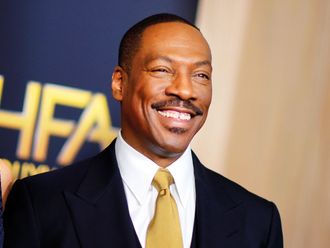
We're taking a break from the Middle Eastern mainstream scene this week to bring you an interview with one of this generation's finest Arab hip-hop artists. A number of Arab voices from around the region have started to make a name for themselves, releasing music that youth in the region can finally relate to, much of it influenced by the recent uprisings in the region.
One of the artists at the forefront of this movement is Omar Offendum, who's enjoyed a successful year of touring and recording. He is in Dubai tonight for a one-off performance in support of the Palestine Children's Relief Fund (PCRF).
Born in Saudi Arabia to Syrian parents, raised in the US, the rapper uses music to bridge his Middle Eastern roots to his Western upbringing. A graduate of the University of Virginia with a degree in architecture, Offendum continues to work while making music. There's no manager, no PR: he runs his own social media, and handles his own shows.
Excerpts from the interview
Tell us about the charity gig you are doing tonight.
We're doing a show at the American University of Dubai to raise awareness and funds for PCRF. It's a charity I help, support as much as I can, because they truly do some amazing work. I feel really blessed to be able to work with them.
Are charitable causes important to you as an artist?
I am proud just to be able to use my music to raise awareness. When they found out I was coming, we decided to create an event in support of it. [UAE-based DJ] Dany Neville, who is a good friend of mine, will be spinning there, while one of the volunteers from the group will be Palestinian rapper Ed Hooligan. There will also be a performance from Khalid M, an upcoming Libyan-American rapper. It should be a lot of fun. It's from 7pm to 11pm so people can come and enjoy themselves, then go party afterwards. It is open to everyone.
Tell us about how you started as a musician.
I listened to a lot of music growing up, but was also into Arabic culture and poets. I went to a Saudi school in the US. We had to study Arabic poetry, something I became really fond of. Arabic lyricism in poetry draws parallel to that in hip-hop. I really didn't get into making music until I went to college. I started making beats, taking samples from the music my parents loved, then halfway into my college career, 9/11 happened, and all of a sudden there was a shift. I was no longer just another student on campus — I was a Muslim Arab on campus. It led to some interesting conversations, and some people on campus didn't necessarily agree with what I stood for. I was against the war in Iraq and the war in Afghanistan. But it was a learning experience, and it was important for me to find my voice. I see those years as a period of laying the groundwork for what I am doing now.
Then you went online.
The internet levelled the playing field. I don't have a label, I don't have a manager — I do it all on my own. All my collaborations led up to me finally releasing my album SyrianamericanA. Since then, I've been performing across the region, as well as other regions.
How did the name Offendum come about?
The name Offendum means something so respectful on one side of the world [it means "Sir" in Arabic], while something so offensive on the other side of the world, because people think it is a play on the words "offend them". That in its itself is a perfect metaphor for what I do... it shows how certain things are interpreted in different parts of the world.
How has the Arab uprising affected your work?
We released the track #Jan25, a collaboration with The Narcicyst, Freeway, Ayah and Amir Sulaiman. It was a song of solidarity — I do not claim to speak for people of the revolution. What we were doing was showing our support for people that use this medium. It's terrifying and awe-inspiring at the same time. Change doesn't come overnight; it will take time. We just have to remain positive and get through it, but I am also aware of there are plenty of opportunists out there. The future is in the youth's hands — it has to work. It has definitely influenced my music, and it has influenced the world. Just look at Occupy Wall Street. But you can't predict what's going to happen.
Do you listen to any mainstream Arabic artists?
I like Asalah. I like her stance and I like her work. I also appreciate Kathem Al Saher and his use of poetry. I love Khaleeji music — the rhythms, the sounds and the lyricism.
What's next for you?
Now I am working on my second album with Sami Matar. It will be out this year. Although I did say that the Street Called Straight video would be released in September and it only was released this month.
Finally, you made your career online. What's your take on the sharing of music on their internet?
The region has few outlets where you can purchase music. I have built my career on the basis of offering my music for free and people sharing it, then these people come to my shows. If I continue doing good shows, they'll come out and support. I am happy to spread my music to those in the region.
"Well, the shape of the chosen songs is beginning to unfold, I'm really happy about them but of course ur the final judge:)"
— Elissa
"Reading all your tweets and enjoying them.. Thanks to all my fans on twitter!"
— Amr Diab
MBC launches 04
MBC has launched a television drama where viewers will be able to interact with the characters online — a first of its kind in the Middle East.
Entitled 04 (Zero Four), the series revolves around the lives of four young men as they grapple with their day-to-day lives in Dubai. Extending beyond traditional television is the fact that viewers can now track every character's thoughts and life in real time through their social media profiles on Facebook, Twitter and Google+. But that's not all — characters will join in the conversation by engaging with friends and followers.
"The 04 multi-platform TV experience is one of the most ambitious projects MBC has ever taken on", said Mazen Hayek, MBC's Group Director of PR and Commercial.
He added: "04 is about more than four young men, it's about reflecting the lives of every youth out there and the struggles they face in a rapidly changing world. This is about listening to an audience that has rarely been heard — and responding to it, engaging them on their terms and giving them a voice and platform to talk to us — and each other."












